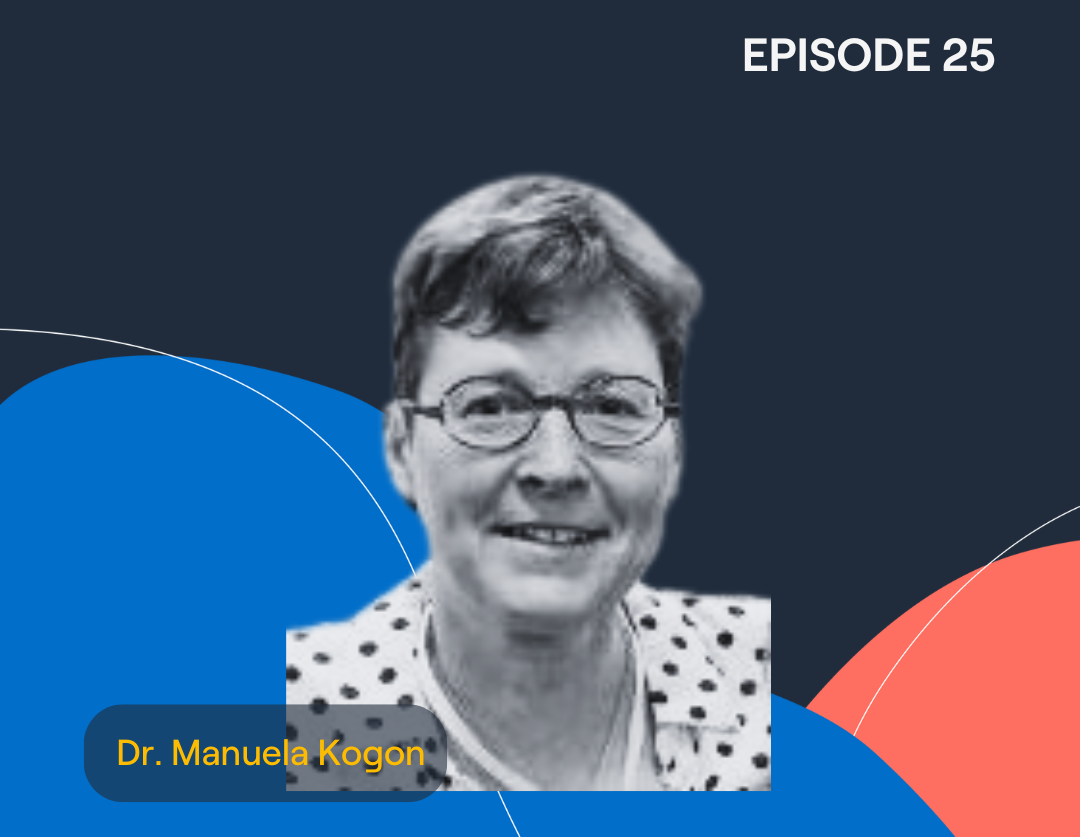Part 1 of 2 with Dr. Manuela Kogon, Integrative Medicine Internist, Professor and author of “When Cancer Visits: How to Free Your Mind from the Grip of Distress and Heal Your Jolted Nervous System.” Dr. Kogon specializes in mind-body medicine and non-pharmacological treatment of illness distress and talks about the internal and external stimuli that drive stress. She discusses the unique uncertainty that comes with cancer survivorship and how to live your life with daily living versus longer term planning. For those living with cancer, Dr. Kogan talks about the question of quantity vs. quality of life, and how patient values might not always match with those of their loved ones. She also talks about how expansion of these principles to other cultures needs to be nuanced to appropriately account for differences in the cancer experience.
About our guest
Manuela Kogon is an integrative medicine internist in private practice and a clinical professor at a large university. Dr. Kogon has devoted her life to patients in distress and has helped them connect to their innate ability to heal. She divides her time between California, Europe and rural Massachusetts and is looking forward to the day when humans rediscover their ability to be emotionally present for their fellow beings. You can learn more about her book “When Cancer Visits: How to Free Your Mind from the Grip of Distress and Heal Your Jolted Nervous System here.
Key Moments
19 minutes:
On external vs. internal stimuli that drives stress.
To separate external stimulation from internal stimulation, when people talk about fight, flight and freeze: if I put a gun to your head you’ve got to be activated, and you’ve got to fight back and run. But people aren’t fully aware that their internal system activates them, too. Someone with fear, if their heart beats faster might say ‘Oh my goodness, am I having a heart attack’ Or someone with pain might say ‘Oh, is my cancer might be back?’ And that’s a very activating thought. So I make people aware if that activation is external or internal.
22 minutes:
On how to live while grappling with uncertainty and fear as a cancer survivor.
If you have a miniscule chance of recurrence, I wouldn’t want that to affect your life. So that’s an important thing, but uncertainty and unpredictability; it’s like ‘how do I manage my life if I don’t know?’ Am I now going out to live life as though it’s coming to an end tomorrow or do I live life as if I’m going to live another 40 or 50 years? That’s a very different approach to life. And in some ways, you have to do both. And how do you do that? How do you live as though life is going to be shorter with more awareness, or how do you live with life lasting. The different values become important depending on the scenario, and you have to juggle them both. And that is very stressful.
38 minutes:
On living with cancer and the cost-benefit analysis of quantity vs. quality of life.
You’re caught between all these choices and this optimization of very difficult choices. There’s never a good answer, there’s only a cost-benefit analysis in that if the cost of taking the medicine is that high, and the benefit is this, but if I look at the cost, it’s attached to another cost – it’s a complicated decision making algorithm that’s overwhelming. And then the question arises, if I want quality and it comes at the price of quantity do I have the right to make that choice. Your loved ones won’t like it because they will always go for quantity.
Disclaimer: This podcast blog is for general informational purposes only and does not constitute the practice of medicine, nursing or other professional health care services, including the giving of medical advice, and no doctor/patient relationship is formed. The use of information on this podcast blog or materials linked from this podcast blog is at the user's own risk. The content of this podcast blog is not intended to be a substitute for professional medical advice, diagnosis, or treatment. Users should not disregard, or delay in obtaining, medical advice for any medical condition they may have, and should seek the assistance of their health care professionals for any such conditions.
Join us to get the latest episode
Watch Episode
Recent Podcasts

Sami Mansfield on Exercise as Cancer Treatment and Building Strength Through the Side Effects

Dr. Laila Agrawal on Sex After Breast Cancer and the Conversations Patients Aren’t Getting

Leslie Ferris Yerger on Dense Breasts, Missed Screening, and Why “All Clear” Didn’t Mean Safe

